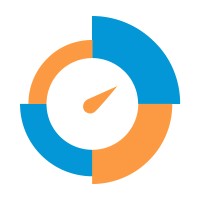Filter By
Data Projects
The CPS is the U.S. Government's monthly survey of unemployment and labor force participation. The BLS maintains a CPS Home Page with a great deal of information about the survey and the Census Bureau provides access to downloads of recent data. The CPS basic monthly files contain information on labor force status but do not contain the full income and demographic data contained in the March supplements, nor do they contain usual hours or wages except for the households in the outgoing rotation group. A housing unit in the CPS is interviewed for four consecutive months and then dropped out of the sample for the next eight months and is brought back in the following four months. So, in any given month, one-eighth of the housing units are interviewed for the first month. When the system has been in operation for a full year, four of the eight rotation groups for any month will have been in the survey for the same month, one year ago. Matching information and Stata .do files from NBER Working Paper T0247 by B. Madrian and L. J. Lefgren are available for March-to-March Annual Demographic File matches but can be modified for use in matching CPS Basic Monthly Data. Census Technical Paper such as 66 and 63 contains more information about Design and Methodology.
A study was conducted by Health Canada to survey the general public, including non-smokers and smokers, in the provinces of Newfoundland and Labrador, and British Columbia. The survey was conducted to measure knowledge, attitudes, and behaviours of the population, both smokers and non-smokers, to serve as a baseline against which to measure and evaluate the impact of the smoking bans. A total of 1,468 adults, including 800 smokers, were surveyed in British Columbia on attitudes toward second-hand smoke and smoking in public places, during the same timeframe, also using a random-digit dial sampling process and trained, bilingual interviewers to administer the questionnaire. The margin of error for samples of this size is also plus or minus 2.6 percentage points, 19 times in 20 for the overall sample and plus or minus 3.5 per cent for smokers. The questionnaire was largely replicated from previous iterations with other provinces, although some items were changed based on the needs and laws in each province.
A study was conducted by Health Canada to survey the general public, including non-smokers and smokers, in the provinces of Newfoundland and Labrador, and British Columbia. The survey was conducted to measure knowledge, attitudes, and behaviours of the population, both smokers and non-smokers, to serve as a baseline against which to measure and evaluate the impact of the smoking bans. A total of 1,468 adults, including 800 smokers, were surveyed in British Columbia on attitudes toward second-hand smoke and smoking in public places, during the same timeframe, also using a random-digit dial sampling process and trained, bilingual interviewers to administer the questionnaire. The margin of error for samples of this size is also plus or minus 2.6 percentage points, 19 times in 20 for the overall sample and plus or minus 3.5 per cent for smokers. The questionnaire was largely replicated from previous iterations with other provinces, although some items were changed based on the needs and laws in each province.
A study was conducted by Health Canada to survey the general public, including non-smokers and smokers, in the provinces of Newfoundland and Labrador, and British Columbia. The survey was conducted to measure knowledge, attitudes, and behaviours of the population, both smokers and non-smokers, to serve as a baseline against which to measure and evaluate the impact of the smoking bans. A total of 1,468 adults, including 800 smokers, were surveyed in British Columbia on attitudes toward second-hand smoke and smoking in public places, during the same timeframe, also using a random-digit dial sampling process and trained, bilingual interviewers to administer the questionnaire. The margin of error for samples of this size is also plus or minus 2.6 percentage points, 19 times in 20 for the overall sample and plus or minus 3.5 per cent for smokers. The questionnaire was largely replicated from previous iterations with other provinces, although some items were changed based on the needs and laws in each province.
The main purpose of this survey is to study the coverage of the employment insurance program. It provides a meaningful picture of who does or does not have access to EI benefits among the jobless and those in a situation of underemployment. The Employment Insurance Coverage Survey also covers access to maternity and parental benefits. The survey was designed to produce a series of precise measures to identify groups with low probability of receiving benefits, for instance, the long-term jobless, labour market entrants and students, people becoming unemployed after uninsured employment, people who have left jobs voluntarily and individuals who are eligible, given their employment history, but do not claim or otherwise receive benefits. The survey provides a detailed description of the characteristics of the last job held as well as reasons for not receiving benefits or for not claiming. Through the survey data, analysts will also be able to observe the characteristics and situation of people not covered by EI and of those who exhausted EI benefits, the job search intensity of the unemployed, expectation of recall to a job, and alternate sources of income and funds. Survey data pertaining to maternity and parental benefits answer questions on the proportion of mothers of an infant who received maternity and parental benefits, the reason why some mothers do not receive benefits and about sharing parental benefits with their spouse. The survey also allows looking at the timing and circumstances related to the return to work, the income adequacy of households with young children and more.
The CPS is the U.S. Government's monthly survey of unemployment and labor force participation. The BLS maintains a CPS Home Page with a great deal of information about the survey and the Census Bureau provides access to downloads of recent data. The CPS basic monthly files contain information on labor force status but do not contain the full income and demographic data contained in the March supplements, nor do they contain usual hours or wages except for the households in the outgoing rotation group. A housing unit in the CPS is interviewed for four consecutive months and then dropped out of the sample for the next eight months and is brought back in the following four months. So, in any given month, one-eighth of the housing units are interviewed for the first month. When the system has been in operation for a full year, four of the eight rotation groups for any month will have been in the survey for the same month, one year ago. Matching information and Stata .do files from NBER Working Paper T0247 by B. Madrian and L. J. Lefgren are available for March-to-March Annual Demographic File matches but can be modified for use in matching CPS Basic Monthly Data. Census Technical Paper such as 66 and 63 contains more information about Design and Methodology.
The CPS is the U.S. Government's monthly survey of unemployment and labor force participation. The BLS maintains a CPS Home Page with a great deal of information about the survey and the Census Bureau provides access to downloads of recent data. The CPS basic monthly files contain information on labor force status but do not contain the full income and demographic data contained in the March supplements, nor do they contain usual hours or wages except for the households in the outgoing rotation group. A housing unit in the CPS is interviewed for four consecutive months and then dropped out of the sample for the next eight months and is brought back in the following four months. So, in any given month, one-eighth of the housing units are interviewed for the first month. When the system has been in operation for a full year, four of the eight rotation groups for any month will have been in the survey for the same month, one year ago. Matching information and Stata .do files from NBER Working Paper T0247 by B. Madrian and L. J. Lefgren are available for March-to-March Annual Demographic File matches but can be modified for use in matching CPS Basic Monthly Data. Census Technical Paper such as 66 and 63 contains more information about Design and Methodology.
The CPS is the U.S. Government's monthly survey of unemployment and labor force participation. The BLS maintains a CPS Home Page with a great deal of information about the survey and the Census Bureau provides access to downloads of recent data. The CPS basic monthly files contain information on labor force status but do not contain the full income and demographic data contained in the March supplements, nor do they contain usual hours or wages except for the households in the outgoing rotation group. A housing unit in the CPS is interviewed for four consecutive months and then dropped out of the sample for the next eight months and is brought back in the following four months. So, in any given month, one-eighth of the housing units are interviewed for the first month. When the system has been in operation for a full year, four of the eight rotation groups for any month will have been in the survey for the same month, one year ago. Matching information and Stata .do files from NBER Working Paper T0247 by B. Madrian and L. J. Lefgren are available for March-to-March Annual Demographic File matches but can be modified for use in matching CPS Basic Monthly Data. Census Technical Paper such as 66 and 63 contains more information about Design and Methodology.
The Central Asia Barometer Survey is one of CAB's large-scale research projects, implemented regularly since 2017. Key highlights Around 60 000 interviews since 2017, All Central Asian countries covered, 8 waves conducted to date, Conducted regularly twice a year (spring and autumn waves), Sample sizes of 1500 - 2000, TAPI and CATI methods, The core part of the questionnaire remains the same from one wave to another, Unique insights on attitudes towards foreign countries, international organizations and domestic politics, including elections, government policies, media usage, public health, security and economy.






.jpg)
